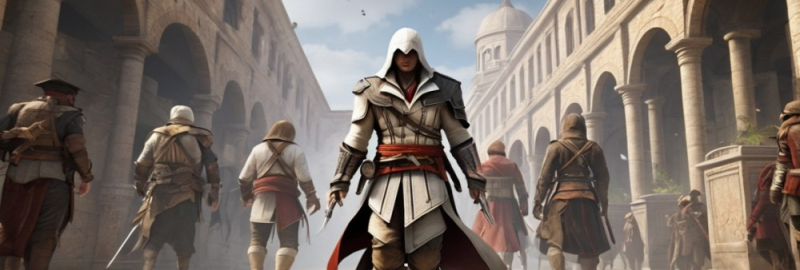
The journey of game development has grown increasingly complex, and as deadlines expand, reflections on optimal timeframes for completion become crucial. The lead producer for Assassin's Creed Shadows highlights that four years represents a suitable duration to transition from the initial concept to the final product.
Assassin's Creed Shadows marks what may be Ubisoft's most extensive investment in the creation of a primary series title. While production timelines in the gaming industry continue to grow, the lead developer believes the established timeframe is appropriate. According to Karl Onnée, advancements in technology lead to more ambitious projects, which in turn lengthen the development process and can elevate costs. He asserts that four years strikes "the right balance to go from conception to production and get the feedback necessary to adapt."
Onnée elaborates that while increasing team size might expedite reaching completion, such an approach might compromise the process of refining the game. The lack of sufficient time to incorporate feedback from both team members and the gaming community can diminish the overall quality of the final product. This concern contributes to why Assassin's Creed Shadows has taken a longer path compared to 2020's Assassin's Creed Valhalla.
Working on a sequel to a title as esteemed as Valhalla presents its challenges, Onnée acknowledges. The heightened expectations motivate the team to elevate their standards and explore new possibilities with Shadows, reflecting a dedication to pushing their creative limits.
Additionally, Ubisoft's commitment to authenticity becomes a significant focal point. With Japan as the game's setting, the team recognized the necessity of extensive research to ensure cultural and historical accuracy. Onnée mentioned the importance of consulting experts and conducting field visits to grasp the nuances of the environment portrayed in the game.
The producer emphasized their pride in creating an authentic experience, noting that constructing traditional Japanese architecture differs significantly from its European counterparts. As artists, the team must understand the intricacies involved in accurately representing such spaces, which requires significant time investment in learning and research.
The development journey has had its challenges, and Ubisoft recently addressed concerns regarding promotional content that stirred dissatisfaction within the Japanese community. With the game set to launch on November 12, anticipation continues to build as stakeholders await its release.
Interestingly, the conversation surrounding Assassin's Creed Shadows extended into discussions with Japanese government ministries, as they highlighted that the realm of historical fiction doesn't align with their focus.


